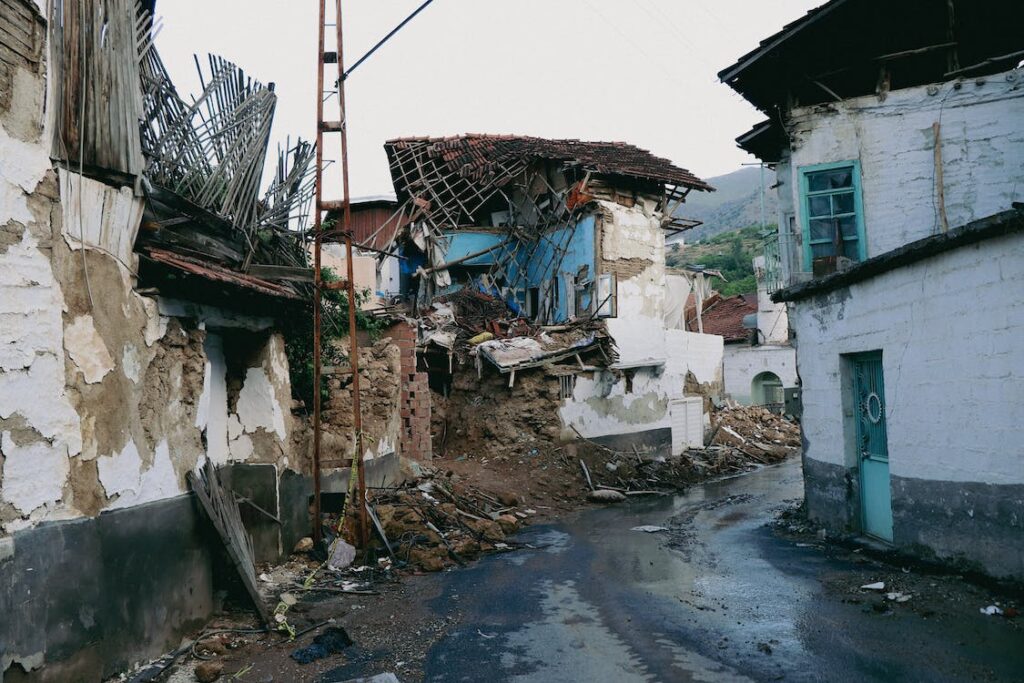$90 Million Push: A Potential Solution for U.S. Buildings to Withstand Climate Calamities
In a move aimed at fortifying buildings to be more energy-efficient and better equipped to withstand extreme weather conditions, the U.S. administration plans to award $90 million in grants. This financial aid will empower cities, states, tribes, and organizations to establish stronger construction codes for both new and existing buildings, as per information released exclusively to The Washington Post.
Originating from the bipartisan infrastructure law passed in 2021, the funding arrives amidst the nation grappling with a succession of severe weather events, exacerbated by climate change. The Northeast is being inundated with a deluge equivalent to over two months of rain causing significant flooding in Vermont. Meanwhile, in the southern United States, approximately 54 million people are bracing for scorching triple-digit temperatures this week due to an oppressive heat dome.
The Energy Department will allocate these grants to 27 deserving projects spread across 26 states and the District of Columbia. The official announcement will be made by Energy Secretary Jennifer Granholm on Wednesday during her visit to Louisiana, a state that has seen its fair share of weather-induced destruction. This includes Hurricane Katrina in 2005, which obliterated or damaged over 800,000 homes and inflicted damages amounting to an estimated $125 billion.
Hurricanes like Katrina and Ida have been pivotal in driving state officials to take action. The Louisiana State Uniform Construction Code Council responded by adopting one of the most stringent building codes in the southeastern United States last year, earning them the approval of environmental advocates. The Southeast Energy Efficiency Alliance, a group advocating for energy efficiency across the region, is set to receive three grants totaling $4.7 million to help execute these codes.
According to Mitch Landrieu, President Biden’s infrastructure implementation adviser, inappropriate building codes can lead to disastrous outcomes in adverse conditions, be it water, fire, or floods. Landrieu, who served as the mayor of New Orleans from 2010 to 2018, played an instrumental role in the city’s recovery post-Katrina. He claims that this funding is a conscious effort by the president to not just rebuild as before but to “build back better.”
The White House asserts that updated energy codes can lead to an average saving of $751 on utility bills for households. However, nearly two-thirds of U.S. communities have yet to adopt the most recent model codes from the International Code Council, a private consortium of local governments and industry groups. Idaho is one example of a state that has not updated its codes in nearly 20 years.
Despite the hurdles President Biden faces in enforcing building codes, which are primarily adopted at state and local levels, he has adopted a strategy of incentives over mandates. With billions of dollars made available through the infrastructure law and the Inflation Reduction Act, the administration aims to motivate more states and municipalities to take action.
The potential climate impact of these changes is considerable. The United States 130 million commercial and residential buildings account for about 35 percent of the nation’s carbon emissions, according to the Energy Department. From 2010 through 2040, updated building energy codes are projected to reduce carbon emissions by a staggering 900 million metric tons, equivalent to the annual emissions of 108 million homes.
The American Council for an Energy-Efficient Economy, a nonprofit group based in Washington D.C., will receive the largest grant of $9.6 million. They plan to collaborate with states and municipalities on revising energy codes. Meanwhile, the state Department of Environmental Protection in Pennsylvania will get $3 million to educate students at technical high schools and community colleges about energy codes and building sciences.
Despite opposition from certain groups such as the National Association of Home Builders, other organizations like the Louisiana Home Builders Association support the new codes, believing they will attract insurance companies back to the state. This support comes at a critical time as Louisiana is grappling with a deepening insurance crisis, with multiple companies either insolvent or pulling out from the state, and soaring insurance premiums for homeowners.
This new funding aims not only to make buildings more resistant to climate-related disasters but also to create a future where buildings are not merely constructed or renovated as before but are built back better. The objective is to make them energy-efficient, resilient, and capable of contributing to the fight against climate change.






